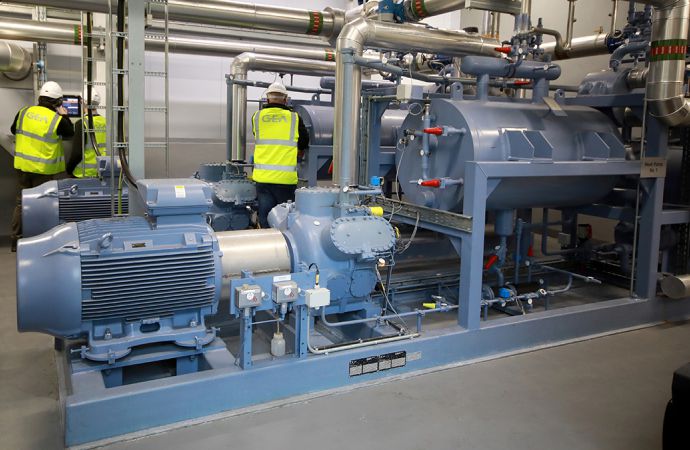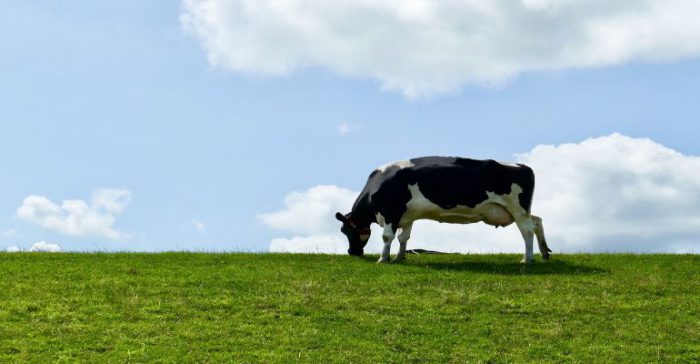This article was originally published on ammonia21.com on 3/24/20.
An ammonia (NH3) heat pump installed last year by Aurivo, Ireland’s second largest milk producer, has increased processing capacity by 80% while cutting its CO2 emissions by 80% by improving efficiency and downgrading oil-burning boilers.
The heat pump, from GEA, is installed at the company’s Killygordon site, where it leverages waste heat from a separate chiller to generate hot water for the pasteurization process.
“The GEA heat pump that collects and recycles what was waste energy from the chiller provides us with the remaining energy needed to take the water up to the pasteurization temperature of a max of 78°C (172.4°F), or even a couple of degrees higher if required” said Stephen Carlin, Aurivo’s Engineering Manager. “This has rendered our traditional fuel oil-burning boilers almost redundant for the pasteurization process. In fact, we now only have to turn the boilers on for one hour a week to kick-start each process cycle.”
The milk processing business is very competitive, with a low profit margin, so for the new system Aurivo was looking to increase both efficiency and production capacity, as well as to reduce its carbon footprint. The new integrated solution achieved all three goals, said GEA.
“All the way through the project, we were focused on offering a complete solution, not just individual parts, so that our technologies could help reduce waste, energy consumption and the use of fossil fuels, while increasing [production] capacity and making the Aurivo facility one of the most sustainable dairy plants in Ireland,” said Kenneth Hoffmann, Product Manager for Heat Pumps at GEA.
The ammonia system increases Aurivo’s production with a 45,000ltr (11,888gal) per hour milk pasteurization system, and at the same time it has reduced the site’s energy consumption – for processing, heating and chilling – by about 12%, said GEA. The CO2 emissions have decreased by more than 181,000kg (399,037lbs) per year. The energy savings have also resulted in a 150,000 euro (US$162,000) per year operational savings for Aurivo.
“The new refrigeration and heat pump solutions provide us with 1200kW (341TR) of cooling, and roughly the same in heating capacity,” Carlin said.

No disruptions
The system is not only efficient, it is also stable. “The upgraded Killygordon plant has operated faultlessly since the new systems were all brought on stream through the first half of 2019, with no disruption to milk processing capacity or quality during commissioning,” Carlin said.
“One of our biggest fears was protracted downtime and not being able to deliver to our customers. That would have had serious consequences for the company,” Carlin added. “The whole process of switching over and commissioning was seamless from the perspective of getting both the liquid processing systems and the refrigeration and heat pump plants on stream.”
The collaboration between Aurivo and GEA didn’t end with delivery of the solution in Killygordon. It continues through a service level agreement, where GEA specialists can access the systems remotely to help monitor and optimize the operations. “The pasteurization and refrigeration systems are linked through the system, which can be controlled remotely, saving time and money and helping to keep the plant running optimally,” Carlin said.
